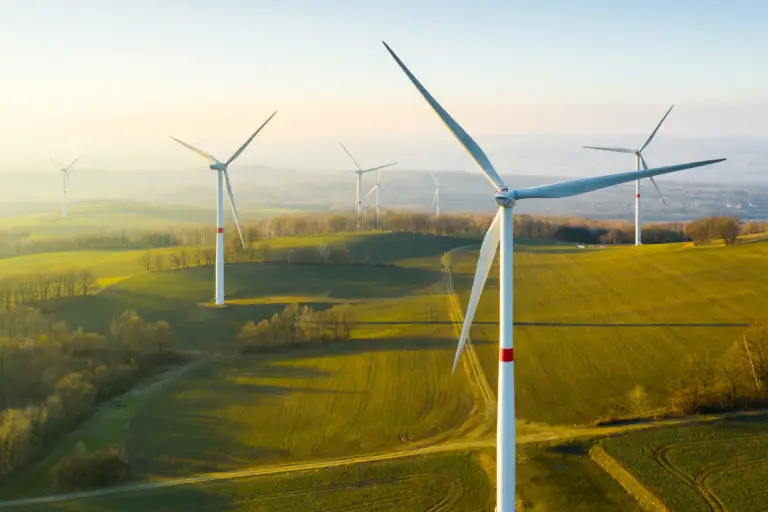Despite a white paper on energy security, which prioritised delivering future solutions as far forward as 2030 and 2050, the gas price crisis remains unabated and set to stay well into 2023. Many hoped for unprecedented support for customers, but it lacked the near-term support which could help customers the most. Near-term measures to emancipate Britain’s energy system from imports, by accelerating the deployment of onshore wind and solar, were left out, and so was any real funding for energy efficiency measures to help households save hundreds.
While more immediate support before the autumn hasn’t been ruled out entirely, briefings in the press suggest discord among MPs on how to support customers beyond the £350 per household announced in the Spring Statement, dubbed a Buy Now Pay Later scheme in Labour’s response. As analysts predict bill increases of £500-£600 in October, calls for urgent government action to help customers will only keep growing, alongside the need for more radical reform of the energy market. Facing a challenge of this scale requires new, innovative solutions of the same scale and impact, which policy will be expected to deliver in the months and years ahead.
Queen’s Speech 2022
While the 2021 address aimed to set the stage for recovery from the pandemic, this year’s comes at a particularly crucial juncture for a government facing challenges on multiple fronts. With gas prices to contend with and the need to reduce reliance on imports, the rumoured Energy Bill would ordinarily be an opportunity to announce support for customers.
Reports suggest, however, that the Bill would build on plans announced in the Energy Security Strategy, introducing financing models for developing hydrogen for use in industry and CCUS for gas generation, as well as a Future System Operator which would coordinate strategic planning for UK electricity and gas infrastructure. More immediate support for customers, such as funding for the effective rollout of energy efficiency measures or planning reforms to speed up onshore wind deployment, could take a back seat, or be excluded entirely depending on the result of local elections taking place this week. The likeliest scenario would see support introduced in the autumn, tied to the announcement of the next price cap level.
An updated Energy Retail Market Strategy
Last year, Kwasi Kwarteng pledged to update the Energy Retail Market Strategy for the 2020s after a number of suppliers collapsed. The initial strategy aimed to set a pathway for a fair, resilient energy market, back when healthier business models and the costs of net zero were the main priorities. Never more relevant, the Government will now ‘refresh’ and publish an updated Strategy as soon as possible after volatility in the gas market has stabilised.
Measures to tackle the increasing cost of energy need to take into account wider concerns around affordability and fairness. As part of a call for evidence on the same subject last year, one measure being considered is the rebalancing of policy costs between electricity and gas. Simply put, this could see green levies, which increase the amount consumers pay for electricity, charged elsewhere, whether on gas bills or through general taxation. This has its advantages in terms of achieving net zero, funding the deployment of ‘green’ energy and encouraging the switch to low carbon products, such as heat pumps – while ensuring the technology with higher emissions carries the cost.
The Government committed to taking a decision on rebalancing this year. Wider concerns around public backing may see immediate action delayed, if not discounted completely. Recent speculation in the media rejected a similar proposal from members of his party. This suggests the cost of rebalancing, which would likely be assumed under general taxation instead, may prove too much for the Conservative Government which has already increased National Insurance rate.
Review of Electricity Market Arrangements
Before the next price cap period, the Government plans to review current market arrangements, outlining high-level options for electricity market reform. The last time reform was implemented, the Capacity Market auction was introduced to secure energy supply at lowest cost to customers. A similarly radical rethink of how the generation and retail markets interact with each other, which forms of generation are incentivised and how people can access net-zero energy affordably and reliably is overdue.
Options for reform are due for publication before the next price cap period and could play an important part in digitalisation of the energy system. Flexible pricing, designing new-build homes to fit smart meters from the outset, Time-of-Use tariffs and the use of vehicle-to-grid storage technology were referenced in the Energy Security Strategy – a positive sign for the whole system’s thinking behind these commitments.
It may be too early to know exactly which options will be considered for market reform, but there are steps forward which could make it easier to achieve net zero and generate power more cheaply for customers – adapting the energy market in a way which could benefit them, the economy and the environment.
A recent evidence session in Parliament saw the CEO of an energy company propose a social tariff to help poorer households, where a lump sum would be taken off bills and paid for by wealthier households over ten years. Whatever your opinion on how the gas price crisis is to be resolved, no silver bullet exists. As policymaking focuses on the long-term, with a new coal mine back on the table and a licensing round promised for later this year, time will tell if the finer detail on any of these frameworks includes more immediate support to help consumers now.




